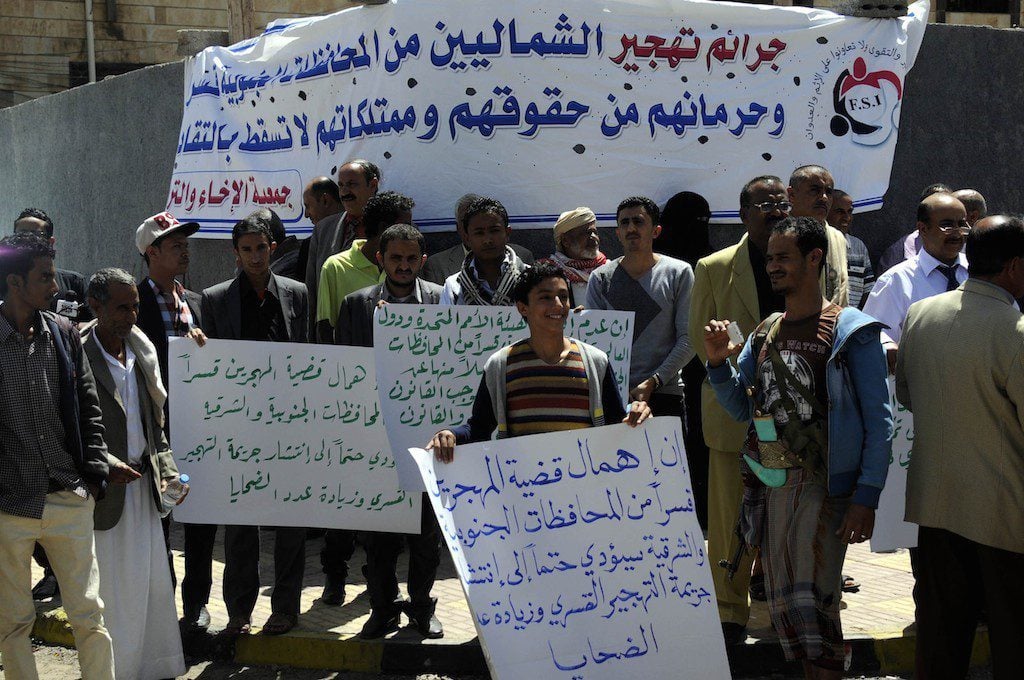
For human rights to exist, a few basic conditions must be met. Legal instruments are needed. But that is not enough. At least as important is the enforcement of those laws. Even that is not enough. There must be public support, too. In Yemen, all of these aspects are problematic.
The legal framework is the least problematic. Yemen’s constitution guarantees quite a few rights. Free elections are provided for, as is an elected president and an independent judiciary. Political parties and NGOs are allowed. In fact, the Yemeni constitution offers more political freedoms than many of its regional counterparts.
Modern human rights such as the right to work, right to education and right to health care are guaranteed by law as well. The country subscribes to the (non-binding) Universal Declaration of Human Rights, is a member state of ten other (binding) human rights conventions and has had a minister for human rights for years.
The effectiveness of these measures is doubtful, though. Yemen has made reservations to international conventions, thereby partly undermining some classical – regionally seen as Western and not universally applicable – human rights. The result: Yemen lacks freedom of religion, gender equality and LGBT rights. Freedom of speech is limited as well; the red lines being both religious and political.
But it is law enforcement where a bigger problem lies: even the less controversial rights are not implemented. A stable state with a firmly established rule of law is far from reality. For years, Yemen had been a de facto dictatorship under ex-president Ali Abdollah Saleh (1990-2012). Corruption, nepotism, tribalism and kleptomania were the norm.
Other human rights are lacking not for want of enforcement or public support, but because they are violated by the enforcers themselves. There are numerous accounts of killing, kidnapping, torture and arbitrary detention by the security forces, both before and during the current war.
It is safe to say that human rights and their protection have not been high on any agenda, with the exception of countless NGOs, both local and international. However, these organizations are often as corrupt as the government, established solely to extract funds from donors. If they are bona fide, they have proven toothless, unable to garner enough public support.
The latter is possibly even more problematic than the lack of institutional enforcement measures. To a certain extent, human rights must come naturally. Take child marriages, for instance. Yemen has no minimum age for marriage and girls are often married off very young.
One could argue, or hope, that even without a legal minimum age, people would not marry off their eight-year-old daughters. Yet they do. The reason is often too little education and money, and too many traditional and religious ‘authorities’ who claim that a minimum age for marriage would be against Islam.
The same can be said for the aforementioned classical rights and freedoms regarding religion, sexual orientation and gender equality. Many Yemenis, even the well-educated, are not necessarily in favour of gay rights or freedom of religion, including the right to have no religion. To put it differently: if free elections were held, it is unlikely that a majority would vote for candidates supportive of a Western-style liberal democracy.
Most Yemenis would wholeheartedly subscribe to the right to education, health care, work and a safe living environment, but less so the more controversial rights. From a Western perspective, this may be worrisome, but realistically, the situation is not going to change any time soon.
Is the situation hopeless? Maybe. Only a few years ago, an attempt was made to fix many of the country’s problems, including human rights-related issues. Diplomats, journalists and members of international forums and think tanks praised the Yemeni path out of its Arab Spring, calling it the ‘Yemen model’.
The idea was not a bad one. State building, a transition of power, reestablishing peace, redrafting the constitution, more guarantees for women’s rights and so on, all were to be achieved by the National Dialogue Conference, held in 2013-2014 under the auspices of the UN. However, these good intentions never made it out of the Mövenpick Hotel in the capital Sana’a, where they were discussed endlessly. Outside, others were preparing for war.
It is this war that has brought Yemen back to square one. Since Saudi Arabia and allies in March 2015 launched their war against Houthi rebels and forces under ex-president Saleh, human rights issues have been overshadowed by more pressing humanitarian concerns. When schools and hospitals are under attack, when food and water are scarce, freedom of religion or closing the gender gap are the least of people’s concerns.


